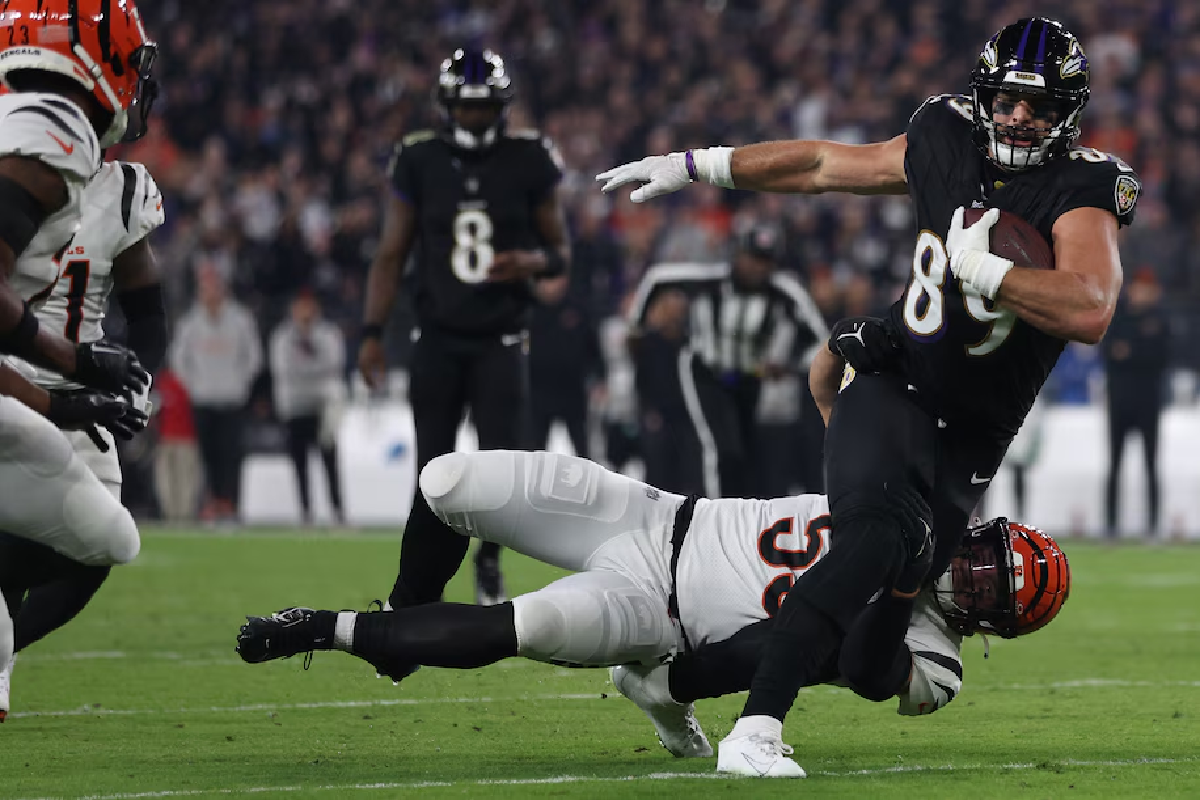The NFLPA’s concern focuses on what it sees as a nearly impossible rule to enforce without both increasing the difficulty for all NFL defenders and avoiding confusion. NFL competition committee chairman, Rich McKay, attempted to clear up said confusion by further explaining the league’s process regarding the hip-drop tackle rule proposal.
“This is a specific type [of] a tackle where a player grabs and unweights himself … and comes down on the knee or the ankle,” McKay said, per NFL Network Insider Tom Pelissero.
McKay acknowledged the rule might be difficult for officials to enforce in real time, and expects most penalties to come in the form of Monday fines in order to correct technique and ultimately eliminate the hip-drop tackle from the sport.
The NFL took a similar approach with the now widely understood horse-collar tackle following a play in the 2004 season in which Eagles receiver Terrell Owens suffered a fractured ankle after being awkwardly dragged down by the inside of his shoulder pads. The league eventually banned the tackle, which now draws an immediate flag.
The hip-drop tackle, however, is not quite as easy to identify on the field. Former All-Pro cornerback Richard Sherman took to social media this week to voice his condemnation of the proposed change, calling it “insane.” Nonetheless, Vincent sees it as a change that will be essential to the potential of the sport.
“It’s hard for us at the National Football League to walk out of a room and not address this,” Vincent said, per Pelissero.
The NFL’s owners will vote on the proposal as part of 10 possible changes next week. The other notable proposal — a significant adjustment to kickoffs that has already been tested in smaller spring leagues — is gaining support from the league, too.
McKay pointed to lower scoring numbers in the NFL in 2023 as a reason a change to kickoffs, which he said have seen return yards drop from roughly 45,000 in 2010 to just 13,000 in 2023. The NFL wants the kickoff to matter again, McKay explained, and the league sees this proposal as a potential avenue to creating such an outcome.
As for possible changes to the trade deadline timing, it seems the reaction has been mixed.
“It will be interesting to see the discussion. Some strongly in favor, some not,” McKay said, via NFL Network Insider Ian Rapoport.
One change that won’t come in 2024 concerns the style of QB sneak popularized by the Philadelphia Eagles. The NFL’s message on that matter is simple, according to Vincent: “Leave it alone. The Eagles do it well.”
